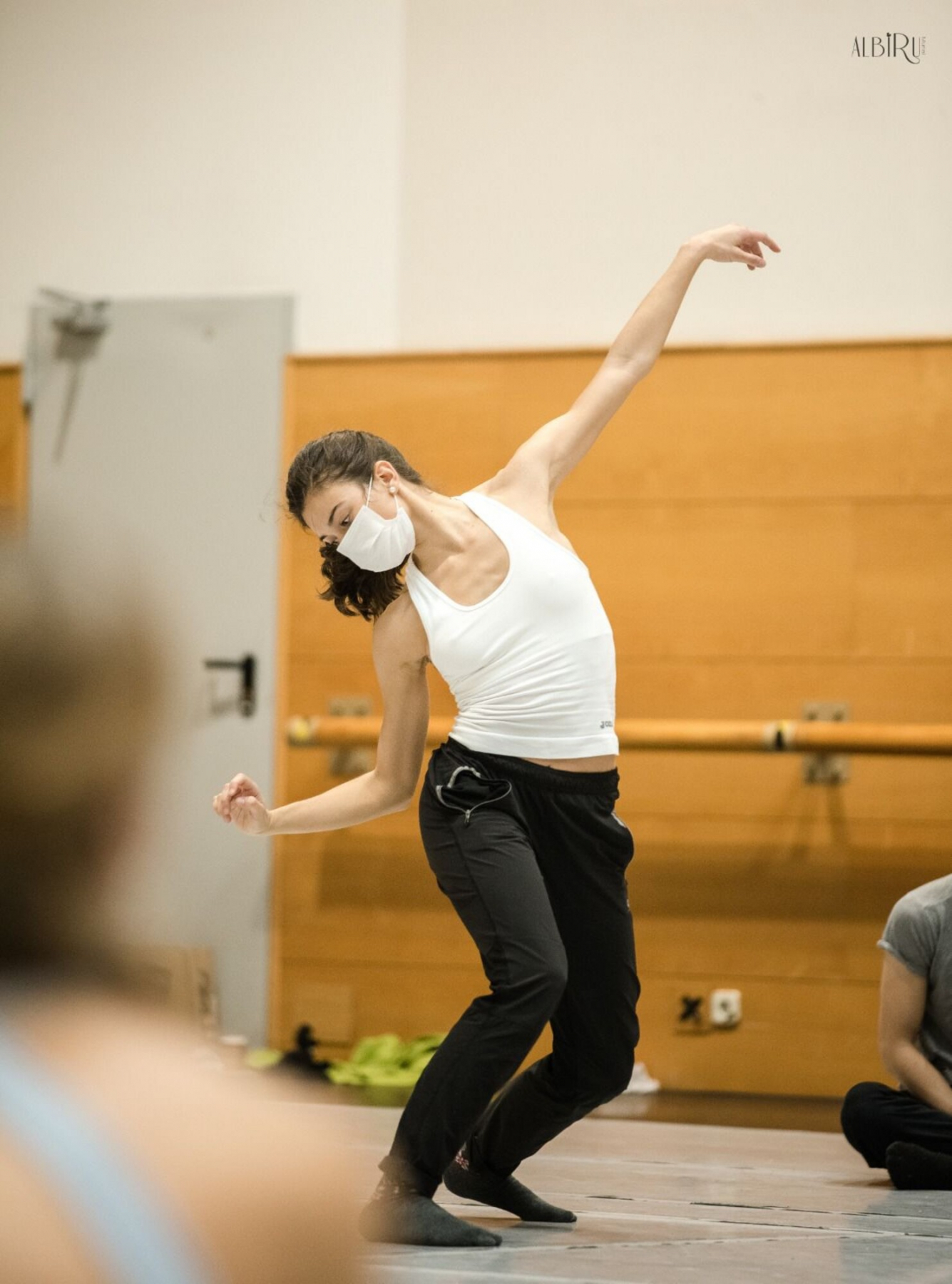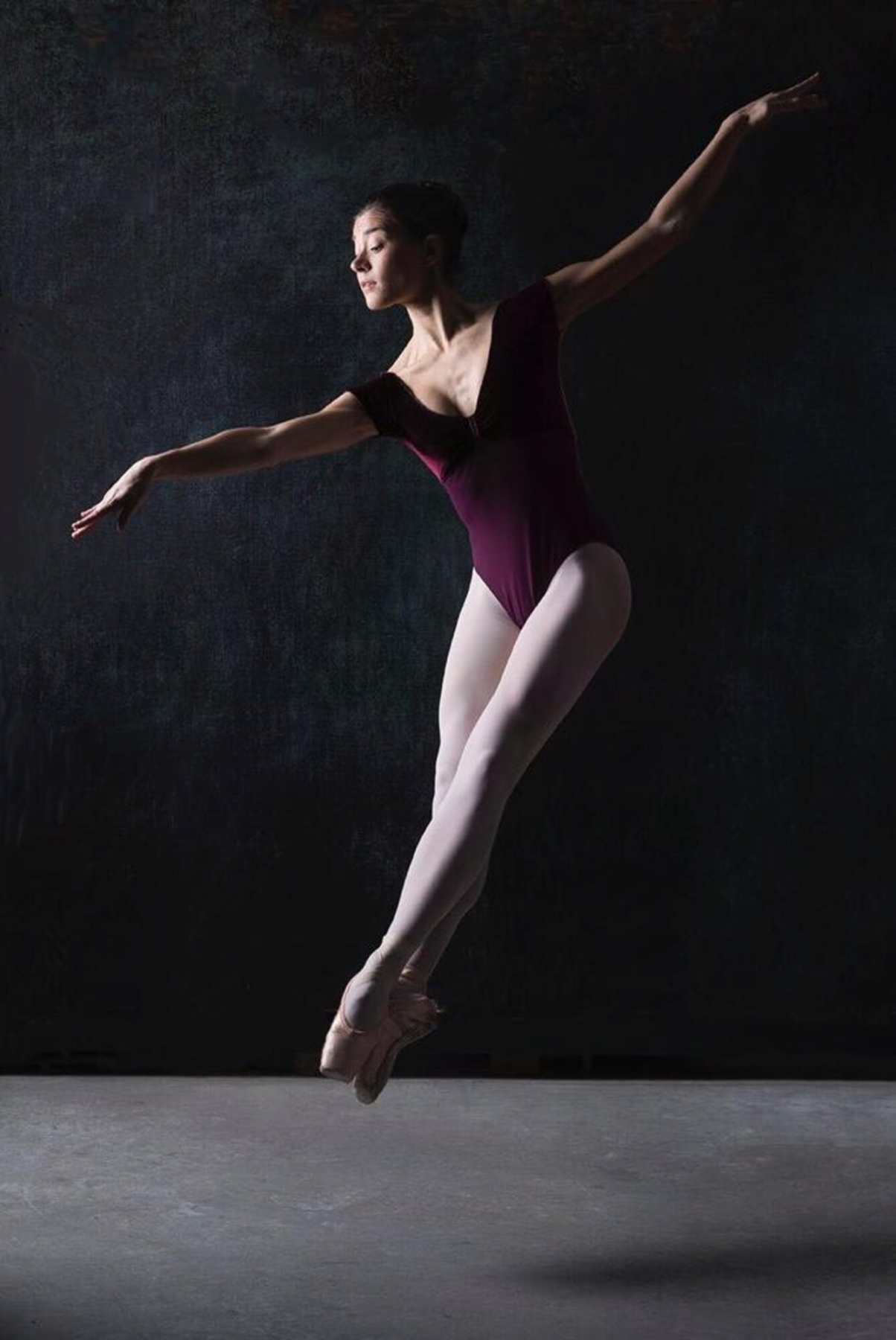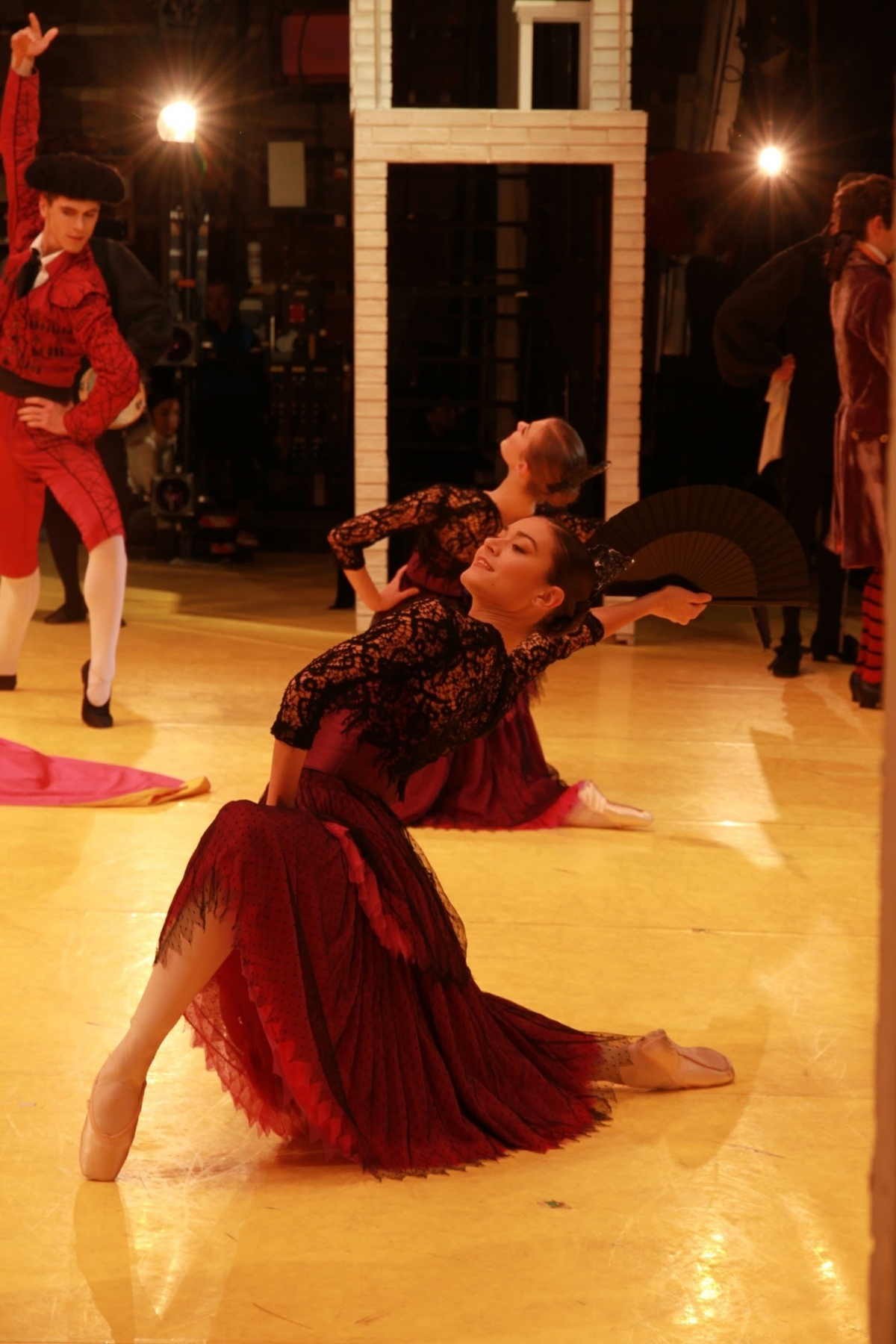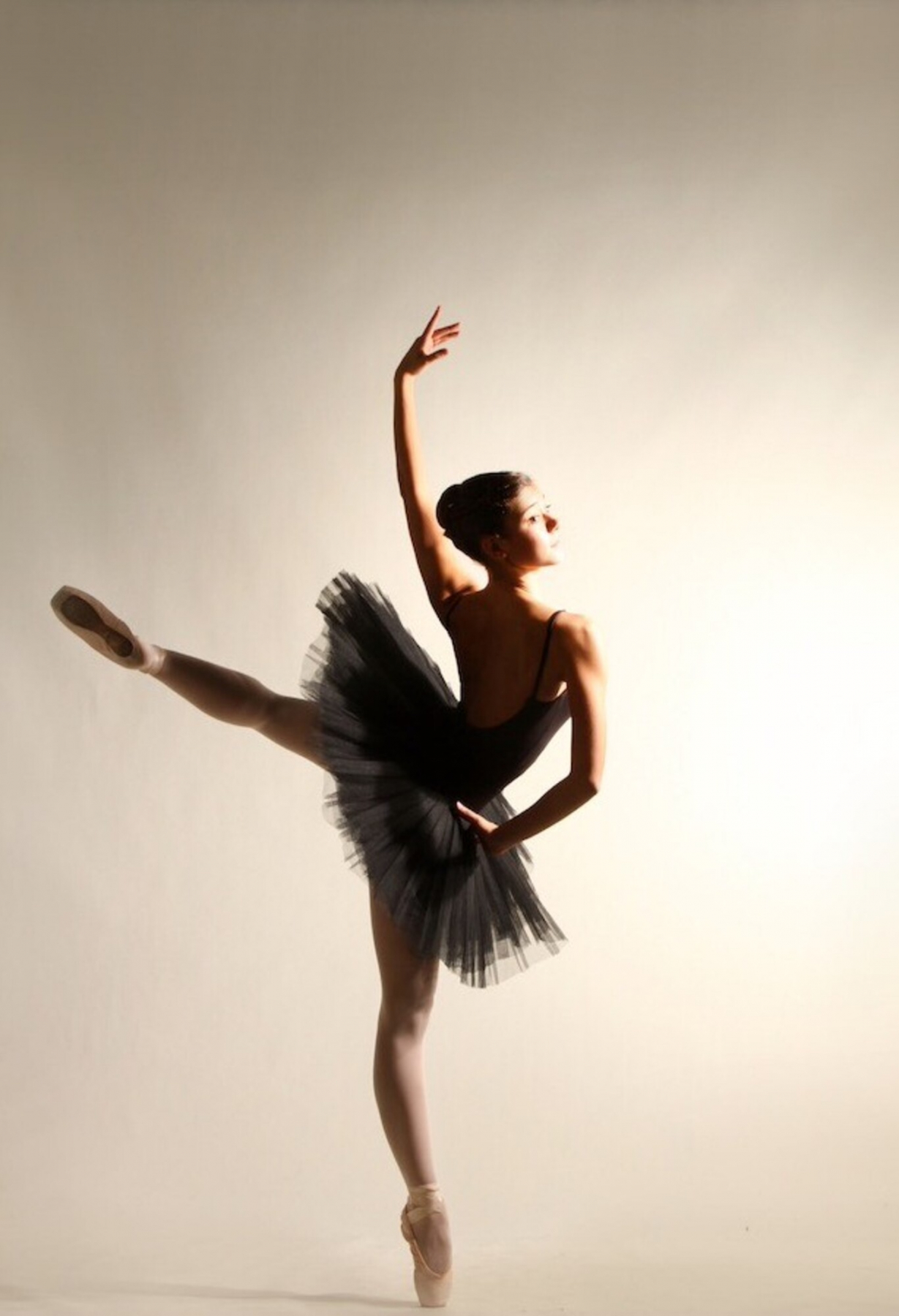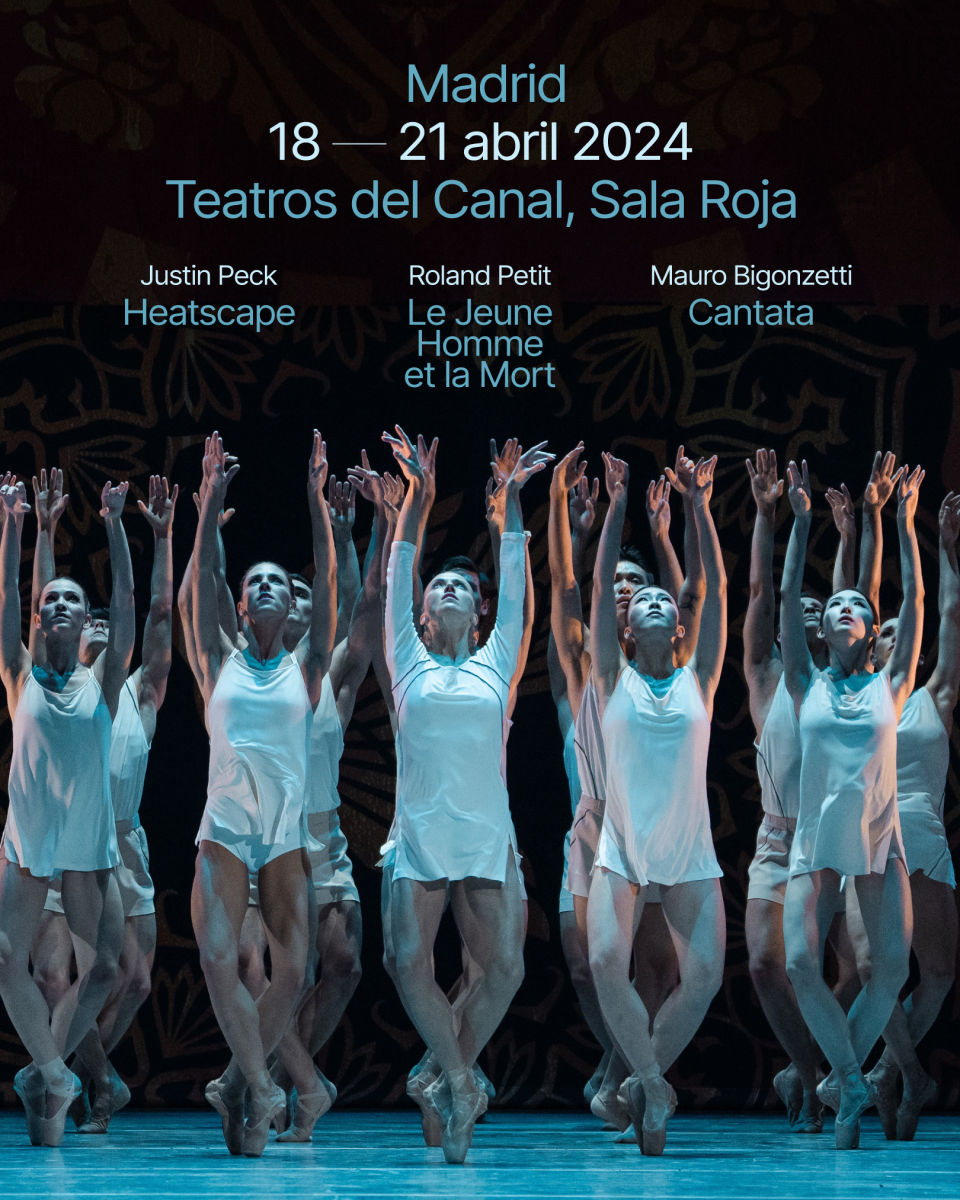Dancing around the world with Natalia Butragueño
Happy Birthday!
Natalia Butragueño’s positive energy has been a contagious influence for all ever since she joined the CND as a corps de ballet dancer in September. She started out in the world of dance at the Escuela de África Guzmán, later moving to England to continue her training at the Tring Park School for the Performing Arts. In 2014, she took an opportunity that arose for her to dance in a number of productions with the English National Ballet. Subsequently, she joined the Ballet de l’Opéra de Bordeaux where she shared the stage with eminent professionals who helped her grow as a dancer. In 2020, she joined the Compañía Nacional de Danza under the direction of Joaquín De Luz and where she displays her natural interpretational skills every day.

Coming from a family where career and vocation pervade, was it easy to find your vocation? When did you start to discover it?
The vocation was there ever since I was little. I began dancing because I loved it but I never thought it was going to be my career. I think the vocation really comes from my mother’s side. My mother did ballet up to the age of 18 and my grandmother also danced and sang.
I was three when I started getting into ballet and we were then living in Mexico due to my father’s work. I remember that a girl at kindergarten—my best friend—signed up for ballet and I said to my mother, “mum, I want to do that too.” When we returned to Madrid, I started doing the classes they had at school but later joined the África Guzmán dance school. I had a bunch of friends there who I shared incredible experiences with, entering ballet contests and dancing in the school’s Youth Ballet.
At 14, my father told me I had to go to England for a year to learn English; but I didn’t want to give up dance. We searched among the different schools and boarding schools and I was eventually offered a scholarship to study for a year at the Tring Park School for the Performing Arts. I really enjoyed that experience. I spent the whole day dancing with people of my age. There were not just dancers but also theatre and music students. So, I decided to stay there to finish my studies. Later, I had a series of auditions and I got to go to Bordeaux where they took me on. I guess I decided to devote myself to dance because it makes me happy and I think that is something we have to pursue in life.
Your father’s career also demanded a lot of passion and a lot of hard work and discipline. What have you learned from him?
It was initially really hard for my dad to understand how I was going to live from dancing. He would say I was a good student and capable of other studies and career direction; but I wanted to dance.
He has shown me how to give my all and not to give up ever, regardless of any difficulty. He has always helped me keep a level head to reach my goals step my step.
At 14, your parents sent you to England to study English, but you only agreed on the condition that you could keep dancing. How did you combine dance with study?
The school I went to was very well organised. We had morning class until 13.30 and then ballet in the afternoons. Then there was a study hour to do homework. The days were very long but with time to do a lot of things. Although I liked it a lot, it was hard to adapt in the beginning because their system is much more practical than in Spain.
All artists have their guiding influences. Could we say Tamara Rojo was one of yours? How did she help you on your road to dance?
My dad knew a friend of hers which led to him talking to her about finding a school in England because, at the time, she was dancing with the Royal Ballet in London. She suggested a class for her to view my abilities and to recommend a place that suited me. That, for me, was so thrilling. She later became director of the English National Ballet and she offered me a short-term contract to dance in Swan Lake and in Romeo and Juliet. She has always been really nice to me. She helped me a lot.
It was also through her that you got to know Renato Paroni. What did you learn from working with him?
He did classes with adults in the afternoons at Central Ballet School, a ballet school for adults. They were initialisation classes but he really worked the base. That really helped me because it was just what I needed. At the school we did other dance styles that bring a lot to a dancer’s cache; but to get to become a professional at classical dance I needed to devote more time to it. He later asked me along to a summer course he was doing in Mallorca and offered to give me personal training. My dad says he is my guardian angel because he helped me so much. I am a professional thanks to Renato.
In 2014, your talent led you to the Ballet de l’Opéra de Bordeaux where you danced different classical and contemporary ballet works. Which ballet did you enjoy most?
One of the ballets that left a real mark for me was Sleeping Beauty, in which I played one of the jewels. It was the first time I played a key role with a solo part. It was a formative experience. But one of the ballets I most enjoyed was undoubtedly Xenia Wiest’s choreography, called Just Before Now. It was a work created for the Ballet de l’Opéra de Bordeaux and when I danced it for the first time I felt something really special happen on stage.
And the one that involved most work for you?
In 2019, I danced Sidi Larbi Cherkaoui’s Faun, a contemporary piece. I was third cast and, when it was billed a second time, the first cast dancer was leaving the company and the choreographic assistant who came to arrange the piece offered me the chance. It was an inspiring work process. At that time, I was going through a tough patch, with little confidence in myself – to the point of even considering dropping dance. But that experience helped me a lot. It was a very physical ballet with lots of acrobatics, which is tricky for a classical dancer. What’s more, my partner suffered a back injury three days earlier and I had to dance with another boy. It was a real personal and professional challenge.
At 17 you visited South Africa to take part in the Genée International Ballet Competition. Did that entail any change or decision as regards your future?
I took part in the contest when I was doing the second year of my baccalaureate. It was there that I realised I had a good chance at becoming a professional dancer. Even knowing it is a very complicated world, something switched on in my head.
Although you’ve only been in the CND since September, you’ve enjoyed being part of the premiere of Giselle and working with the current director, Joaquín De Luz. What would you highlight about the company?
There is a very positive vibe in the company. Everybody’s very open and they really welcome you as part of the group. I sense a good energy and feel I’m improving because I get support and help from my colleagues. It is a very human company and that is a big deal given that the world of ballet is so competitive. Here, they accept you as you are and everybody brings something to the group.
What new elements is Joaquín De Luz bringing to your career?
He is very positive as a person and that is a great fit with the way I am. I also think he’s bringing interesting pieces to the Company’s repertoire, such as Conceto DSCH by Alexei Ratmansky, Apollo by George Balanchine, pieces by Nacho Duato, such as White Darkness or Remansos, as well as his latest creation, Giselle. He is a very approachable person with all the dancers.
To finish, your birthday falls on the same day as International Dance Day. What does that date mean for you?
I think it is a nice coincidence that could be linked with destiny and I’m proud to have my birthday on that day.
NATALIA BUTRAGUEÑO – CORPS DE BALLET CND
Interview by: Natalia del Buey

